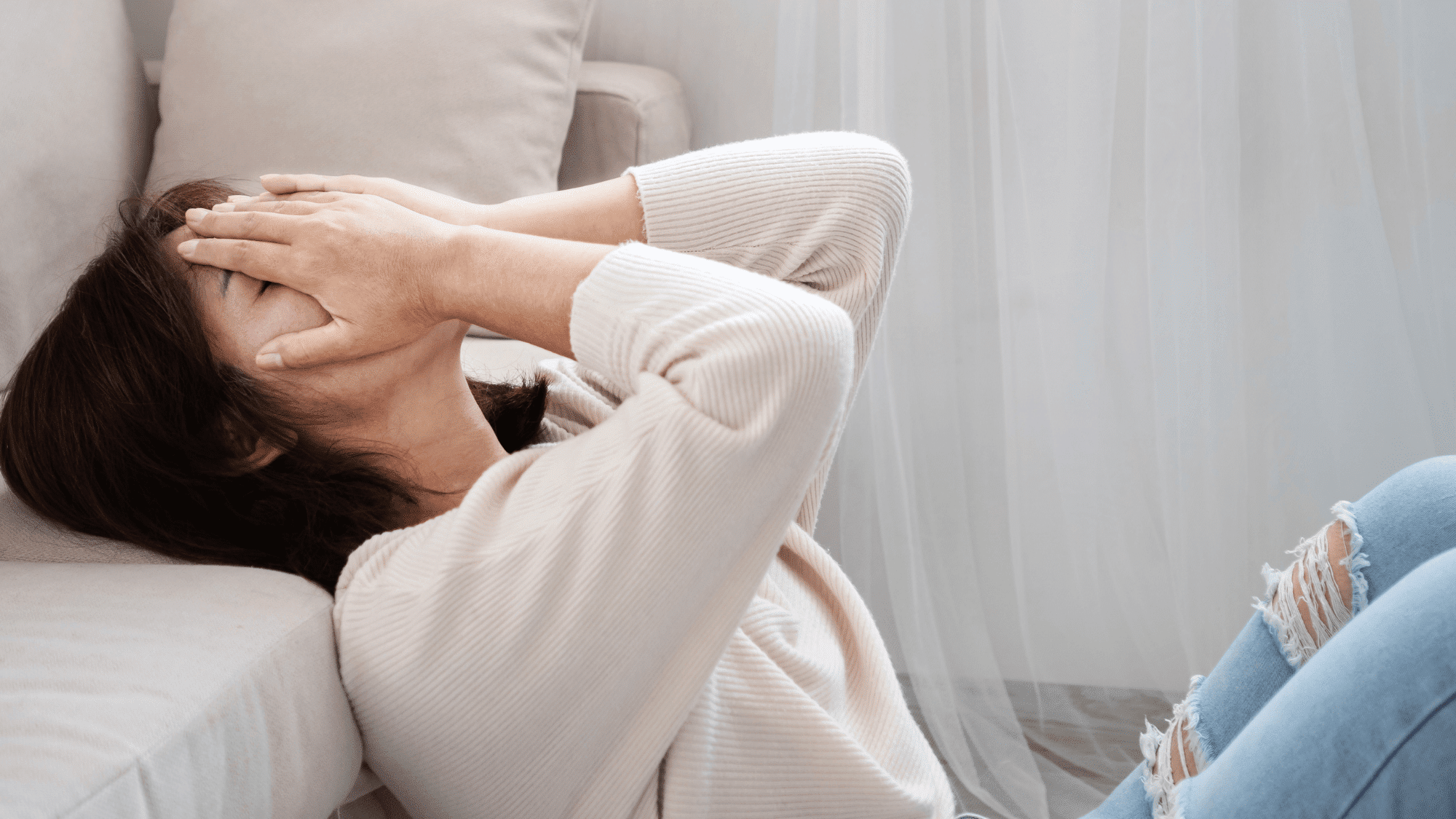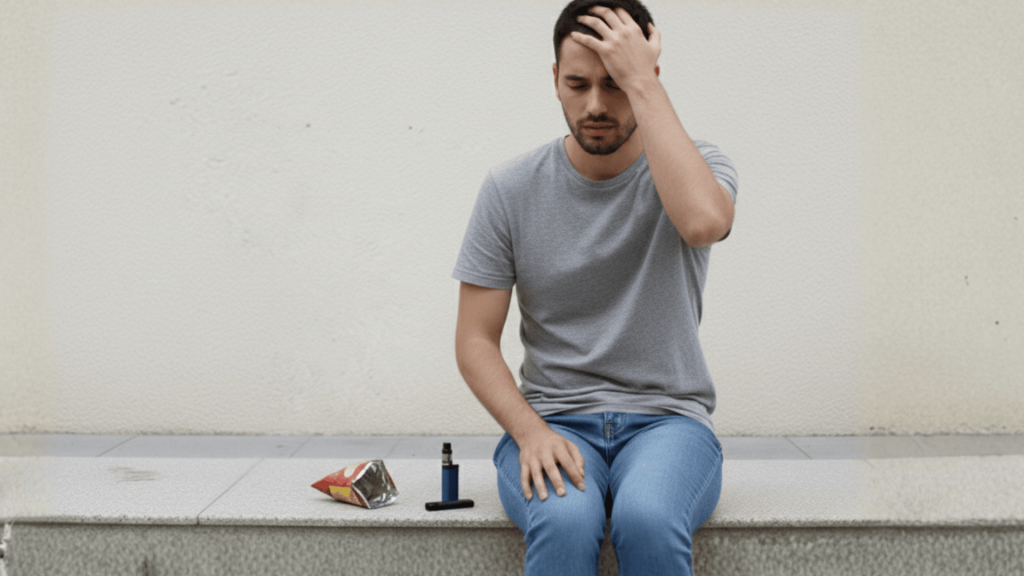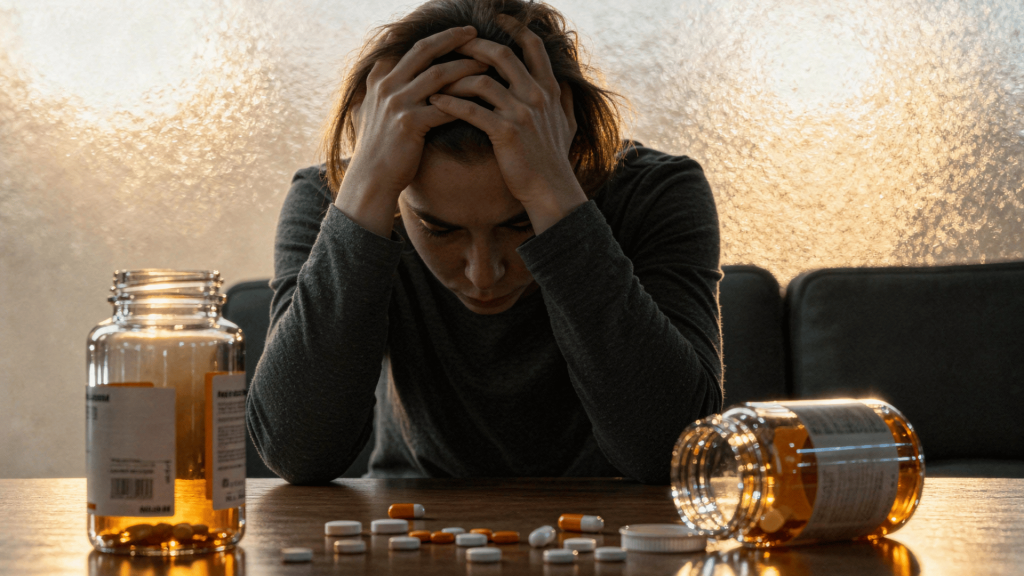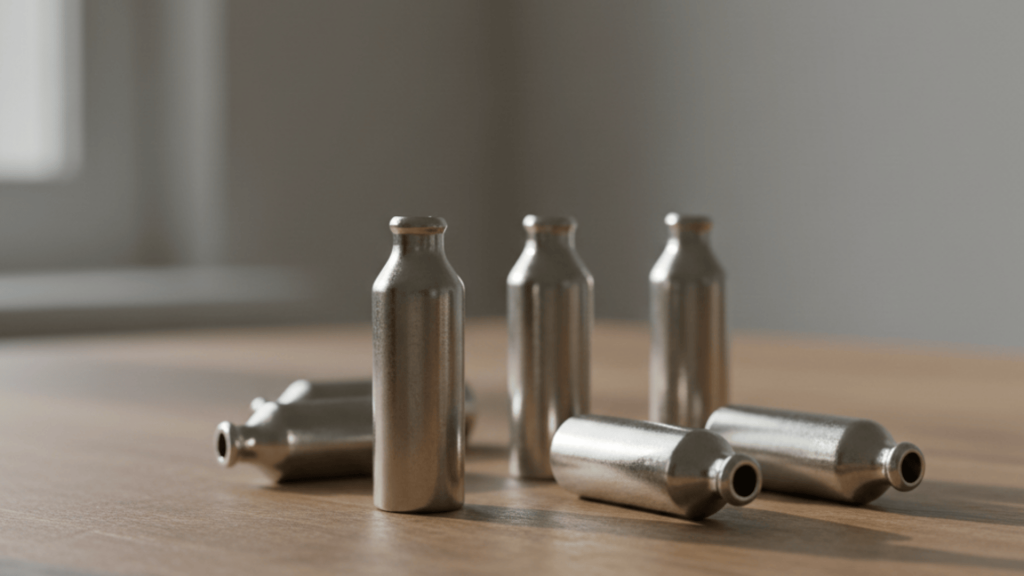If you’ve ever used weed and suddenly felt your heart race, your mind spiral, or your body panic for no clear reason, you’re not alone. I’ve been there too, and it can feel scary in the moment.
In this blog, I’ll walk you through what cannabis-induced anxiety actually is, why it happens, and how long it can last depending on how you use cannabis.
I’ll also cover the difference between anxiety from being high and anxiety from withdrawal, plus the symptoms you should look out for.
And most importantly, I’ll share simple tips you can use to calm yourself down and know when it’s time to get help. My goal is to make this feel clear, honest, and easy to understand.
What Exactly is Cannabis-Induced Anxiety?
Cannabis-induced anxiety happens when THC (the main psychoactive compound in marijuana) triggers or worsens feelings of nervousness, fear, or panic.
Even people who’ve used cannabis without problems before can suddenly experience anxiety.
Common symptoms include:
- Racing or pounding heartbeat
- Panic attacks or intense fear
- Shaking or trembling
- Feeling disconnected from reality
- Paranoid thoughts
- Mind racing with worrying thoughts
- Sweating or chills
Think of it like this: your brain’s alarm system gets accidentally triggered, even though there’s no real danger.
Why Does Weed Cause Anxiety in Some People?
Understanding the “why” can make the experience less scary. When THC enters your brain, it interacts with receptors that control fear and stress responses. Sometimes, this interaction goes haywire.
Here’s what happens:
THC activates special receptors in your brain called CB1 receptors. These receptors are located in areas that control emotions and fear. When they get overstimulated, your brain’s fear center (the amygdala) can go into overdrive.
High-THC strains with little CBD are especially likely to cause anxiety. CBD actually helps balance out THC’s effects, so products without it can hit harder.
Your body might also misinterpret what’s happening. Cannabis increases your heart rate, and your brain might think, “Something’s wrong!” This creates a panic cycle.
How Long Do Different Types of Cannabis Anxiety Last
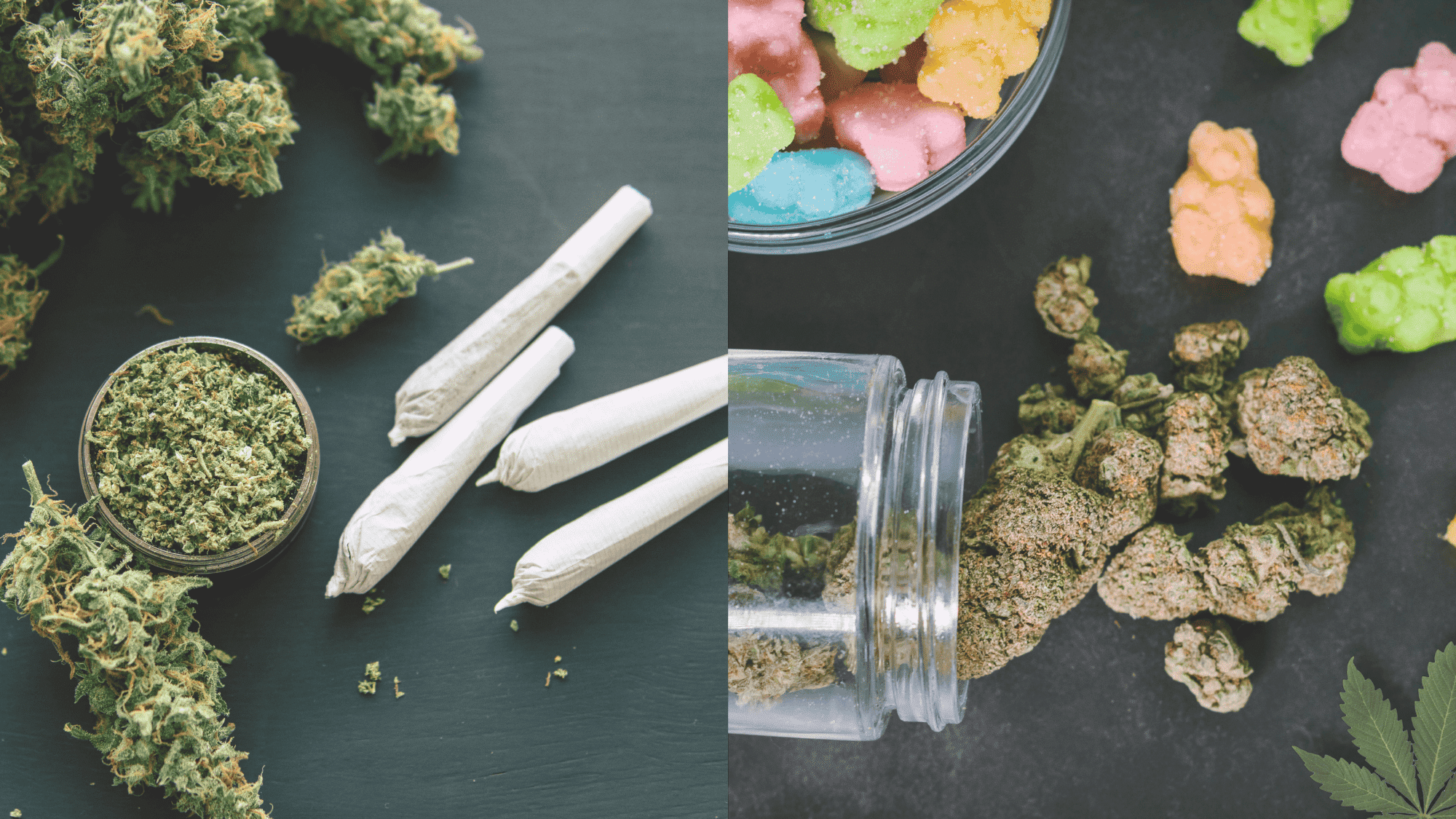
This is the anxiety that happens while you’re high or shortly after using cannabis.
Smoked or Vaped Cannabis
When cannabis is smoked or vaped, anxiety tends to come on quickly, often within minutes, and usually peaks around the 30-minute mark.
Most people feel relief within 1–3 hours. This happens because inhaled THC moves rapidly into the bloodstream and reaches the brain much faster than other methods.
The good news is that it also leaves the body more quickly, which is why this type of cannabis-induced anxiety is typically short-lived compared to edibles.
Edibles
This is where things get trickier. Edible anxiety can last 4–8 hours or even longer (up to 12 hours in some cases).
Medical reports show that people visiting the emergency room for cannabis anxiety stayed an average of 6 hours, with some cases lasting over 12 hours.
Edibles take longer to kick in (30 minutes to 2 hours), but they also stick around much longer because your liver processes THC differently.
Extended Anxiety
Sometimes, anxiety lingers even after the high wears off. This can last up to 24 hours, especially with:
• Very high doses of THC
• Strong edibles
• Products with concentrated THC
Multi-Day Episodes
Although uncommon, cannabis can occasionally trigger multi-day episodes of intense anxiety or psychosis-like symptoms. These episodes can last several days, especially when extremely potent THC products are involved.
People with a genetic vulnerability, past trauma, or a pre-existing mental health condition may be more at risk.
During these episodes, symptoms may include paranoia, confusion, or severe anxiety that does not improve with rest. These situations often require professional evaluation and, in some cases, medical intervention.
Long-Term Anxiety Issues
Long-term anxiety is an important consideration for frequent or heavy cannabis users. Over time, consistent exposure to high levels of THC can alter the brain’s stress response system, making anxiety more persistent, even when not actively using cannabis.
In these cases, anxiety can last weeks or even months, and may resemble a clinical anxiety disorder.
This isn’t caused by a single bad high but rather by ongoing changes in brain chemistry, emotional processing, and how the body reacts to stress.
What Affects How Long Your Anxiety Lasts?
Everyone’s experience is different. Several factors play a role:
| Factor | Impact |
|---|---|
| THC dose | Higher dose = longer anxiety |
| Method of use | Edibles last longest |
| Your tolerance | First-time users were affected more |
| Pre-existing anxiety | Makes it worse and longer |
| Other substances | Alcohol or caffeine can intensify it |
| Genetics | Some people are more sensitive |
Weed Withdrawal Symptoms: A Different Kind of Anxiety
Hold on, there’s another plot twist. If you’ve been using cannabis regularly and decide to quit, you might experience withdrawal anxiety. This is different from the anxiety you feel while high.
Common weed withdrawal symptoms:
- Anxiety and nervousness
- Trouble sleeping
- Irritability and mood swings
- Night sweats
- Loss of appetite
- Unusually vivid dreams
- Restlessness
Timeline for withdrawal:
- Day 1-3: Symptoms start showing up
- Days 2-3: Symptoms peak (this is usually the hardest part)
- Week 1-2: Symptoms gradually improve
- Week 2-3: Most symptoms are gone
For heavy, long-term users, withdrawal symptoms might last up to 3 weeks. The good news? They do get better with time.
How to Calm Down When Cannabis Anxiety Hits
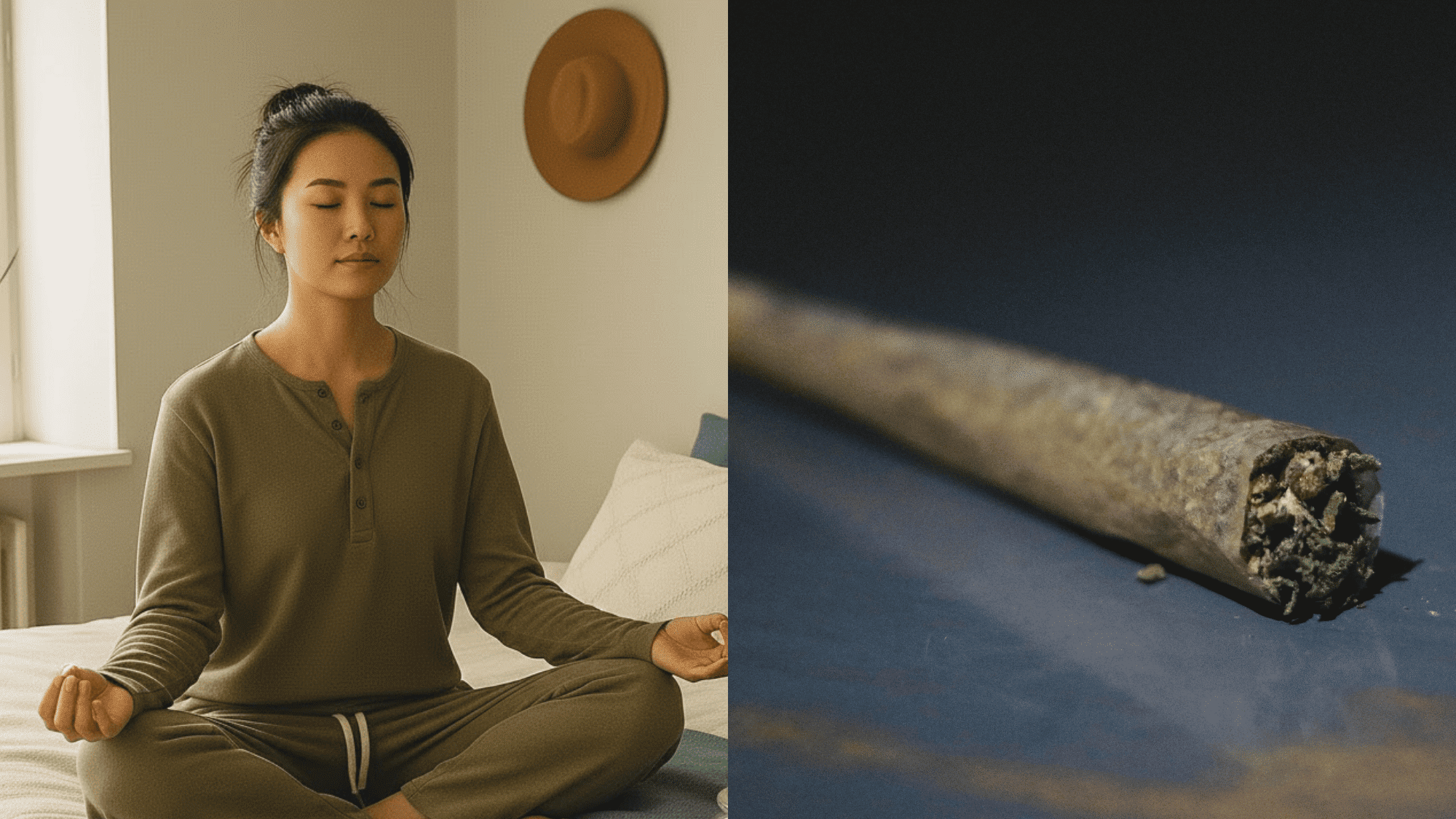
If you’re experiencing cannabis-induced anxiety right now, here are practical things that can help:
Immediate relief strategies:
- Breathe slowly – Take deep breaths in through your nose (count to 4), hold briefly, then exhale slowly through your mouth (count to 6). This signals your body to calm down.
- Remind yourself it’s temporary – The anxiety will pass. Most people feel much better within a few hours.
- Hydrate – Drink water. It won’t speed things up dramatically, but staying hydrated helps your body process everything.
- Find a safe, quiet space – Remove yourself from overwhelming situations. Sit or lie down somewhere comfortable.
- Use distraction – Watch something lighthearted, talk to a trusted friend, or focus on physical sensations (touch something soft, hold ice cubes).
- Try CBD if available – CBD can help counteract some of THC’s anxiety-inducing effects.
- Avoid stimulants – Skip the coffee or energy drinks. They’ll just make your heart race more.
Dealing With Withdrawal Anxiety
If you’re quitting cannabis and experiencing withdrawal anxiety, these tips can help:
- Stick to a Sleep Schedule: Even if sleep is tough at first, going to bed and waking up at the same time helps.
- Move Your Body: Exercise naturally reduces anxiety and helps you sleep better.
- Eat Regular Meals: Even if you’re not hungry, your brain needs fuel.
- Practice Relaxation: Try meditation apps, progressive muscle relaxation, or gentle yoga.
- Connect with Others: Join support groups or talk to people who understand what you’re going through.
When to Seek Professional Help
Most cannabis-induced anxiety resolves on its own, but sometimes you need extra support. Reach out to a doctor or mental health professional if:
| When to Seek Medical Help | Why It Matters |
|---|---|
| Anxiety lasts more than 2–4 weeks | May signal a developing anxiety disorder that needs evaluation |
| Frequent severe panic attacks | Could indicate a worsening panic condition requiring treatment |
| Hallucinations or paranoia | May be related to high-THC use or underlying mental health issues |
| Thoughts of self-harm | Requires immediate professional intervention |
| Unable to function normally | Anxiety is interfering with daily life and responsibilities |
| Chest pain or intense heart palpitations | Important to rule out medical emergencies or panic-related cardiac symptoms |
Treatment options that work:
- Cognitive Behavioral Therapy (CBT) – Helps you change anxious thought patterns
- Professional counseling – Addresses underlying issues and coping strategies
- Medication – Sometimes prescribed for severe anxiety
- Support groups – Connecting with others facing similar challenges
Emergency rooms can help with severe cases. Don’t hesitate to call 911 or go to the ER if you’re experiencing a medical emergency.
Wrapping It Up
Cannabis-induced anxiety can feel overwhelming, but understanding what’s happening in your body and mind can make it a lot less frightening.
I hope this blog helped you see that these reactions are more common than you might think, and most of the time, they don’t last forever.
Even if your anxiety comes from a bad high or from stopping weed after regular use, there are real ways to manage it and feel more in control.
And if your anxiety sticks around or starts affecting your daily life, reaching out for help is always a smart choice. You don’t have to deal with it alone.

